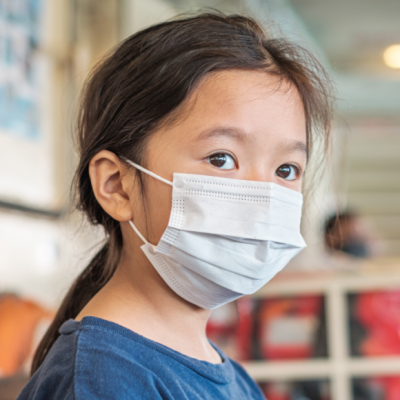According to recent experiments, cloth masks with large mesh sizes can still reduce the risk of SARS-CoV-2 infection. Social distancing and wearing a mask are currently the only measures to prevent the spread of the virus. A study by the Simon Fraser University in Canada found that a mask mandate in public spaces can reduce new infections by about 25%. However, the effectiveness of different types of masks varies significantly. The German Aerospace Center (DLR) has now investigated whether cloth masks can actually protect against SARS-CoV-2 infection.
For the research project, a 12 cubic meter chamber was used to simulate the spread of potentially infectious aerosols and the protective effect of cloth masks. Tiny soap bubbles were released into the chamber to simulate aerosols, and a warm mannequin with an artificial lung was used to simulate a person’s breath. The movements of the simulated aerosols were recorded with high-resolution cameras. The recordings showed that cloth masks, despite their large mesh size, have a protective effect against SARS-CoV-2. The exhaled air flow was slowed down by the mask, and the aerosols were no longer spread as far, forming a cloud around the infected person. In closed rooms, the body heat also causes the exhaled air to rise and carry the slowed-down aerosols with it. However, the scientists still recommend regular ventilation to prevent the accumulation of virus-laden aerosols.
The study provides evidence that cloth masks can be effective in reducing the spread of SARS-CoV-2, even though their mesh size is larger than that of medical masks. However, it is important to note that masks alone are not a substitute for other measures such as social distancing and regular hand washing. The findings of the study can help to inform public health policies and encourage the use of cloth masks as a simple and effective way to protect against the virus.










